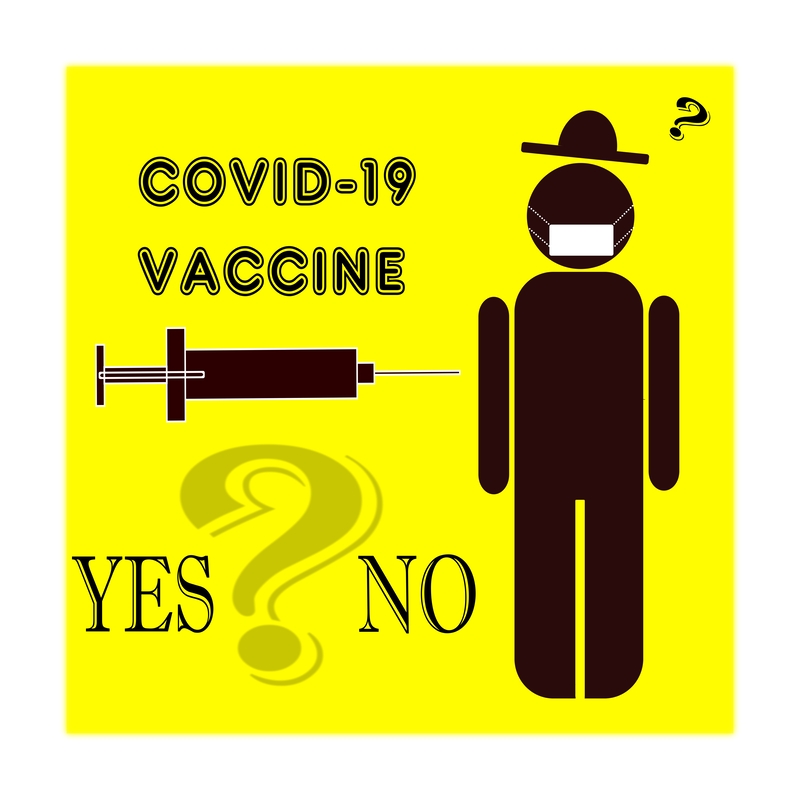On December 16, 2020, the U.S. Equal Employment Opportunity Commission (EEOC) updated its Technical Assistance guide “What You Should Know About COVID-19 and the ADA, Rehabilitation Act, and Other EEOC Laws” on the subject of vaccines. This guidance provides information on the interaction of workplace bias laws and COVID-19 vaccinations, and specifically addresses the topic of mandatory COVID-19 vaccinations in the workplace.
The updated guidance was timely given that the first doses of the vaccine were
distributed and administered to hospital employees last month, prompting discussion about access to the vaccine and whether employers can mandate that employees get vaccinated. The EEOC has taken the position that employers may implement policies requiring their employees to be vaccinated for COVID-19, but must accommodate employees with disabilities or sincerely held religious beliefs, unless the accommodation would present an undue hardship to the employer.
Requiring Vaccination Does Not Violate the ADA
The Americans with Disabilities Act (ADA) contains restrictions on an employer’s a bility to require employees to undergo a medical examination and make disability-related inquiries. Previously considered the main restriction against requiring vaccination, in last month’s guidance, the EEOC opined that a vaccination is not a medical inquiry or examination that implicates the protections of the ADA.
bility to require employees to undergo a medical examination and make disability-related inquiries. Previously considered the main restriction against requiring vaccination, in last month’s guidance, the EEOC opined that a vaccination is not a medical inquiry or examination that implicates the protections of the ADA.
The guidance cautions however, that while the vaccination itself is not considered a medical exam or inquiry under the ADA, the pre-screening questions typically asked before the vaccine is administered “may” implicate the ADA’s provision on disability-related inquiries as the questions are likely to elicit information about a disability. This means that if an employer chooses to administer the vaccine (and as a result asks the pre-screen questions) it must show that the pre-screen questions are job-related and consistent with business necessity. To meet this standard, the EEOC states that “an employer must have a reasonable belief, based
on objective evidence, that an employee who does not answer the questions, and therefore, does not receive the vaccination will pose a direct threat to the health or safety of her or himself or others.”
According to the guidance, there are two situations where an employer can ask the necessary pre-screen questions without having to make a showing of business necessity. The first is if the vaccine is not required or mandatory. In that case, the employee is volunteering to receive the vaccination and by extension answer the pre-screen questions. The other situation where limits on disability-related inquiries do not apply is when the questions are asked by a third-party, such as a pharmacy or employee’s own health care provider. This is because the information obtained from the prescreen questions is not being elicited by or shared with the employer. Under a third-party model, employers may require proof of an employee’s vaccination, but should avoid asking other questions, such as why an employee did not receive the vaccine as that may elicit information about a disability.
What Options Are Available If Employees Refuse To Get Vaccinated
According to the EEOC guidance, an unvaccinated employee can only be physically excluded from the workplace if the employee presents a direct threat, meaning that the unvaccinated employee poses a significant risk of substantial harm to the health or safety of the individual or others that cannot be reduced or eliminated through reasonable accommodation.
In other words, an unvaccinated employee does not automatically pose a direct threat. Before excluding an unvaccinated employee from the workplace, the employer must conduct an assessment of the following four factors to determine whether a direct threat exists:
- duration of the risk;
- the nature and severity of the potential harm;
- the likelihood that the potential harm will occur; and
- the imminence of the potential harm.
The direct threat analysis may be different for front-line workers and emergency responders, as they have more contact with the general public and an unvaccinated employee may spread the virus to members of the general public who are not yet vaccinated, or expose themselves to serious illness by contracting the virus.
According to the guidance, if an employer determines, based on objective evidence, that an unvaccinated employee, either because of a disability or a sincerely held religious belief, presents a direct threat to the health and safety of persons in the workplace that cannot be reduced or eliminated by reasonable accommodation, then it would be lawful to exclude the employee from the workplace. The EEOC guidance distinguishes between excluding an employee and terminating an employee, stating that just because an employer may
exclude an employee who poses a direct threat, the employer may not automatically terminate that employee.
First, an employer must assess whether there is an accommodation that would permit the employee to continue working – for instance, remote work, temporary reassignment to another location where the risk/threat is reduced. This analysis is subject to the same undue hardship analysis as other accommodations under the ADA (or Title VII for religious accommodations). In considering whether undue hardship is present, the EEOC stated that employers should consider the number of employees who have already been vaccinated in its workplace and the amount of contact with unvaccinated individuals in the workplace that would occur.
If no accommodation is available, then the employee cannot perform the essential functions of his/her job with or without an accommodation. A leave of absence may be an alternative accommodation, provided again that it does not constitute an undue hardship. And in certain circumstances, employers may require or allow unvaccinated employees to come to work but continue to require them to adhere to strict safety standards and guidance regarding face covering and social distance requirements.
The Role of Unions
Unions should be involved with bargaining over mandatory vaccination programs. Even with a management rights clause that includes the decision to implement vaccination programs based on public safety, at the very least you should invite the union to discuss the impacts of vaccination program. Such discussions are likely to include issues such as, consequences for employees who refuse the vaccine (if mandatory), time off to get the vaccine and recover (if necessary), procedures for requesting accommodations, who is responsible for any costs associated with the vaccine, and the status of employees between the first and second shot, etc.
Contact your NMP attorney with any questions regarding this or other COVID-19 related issues.






